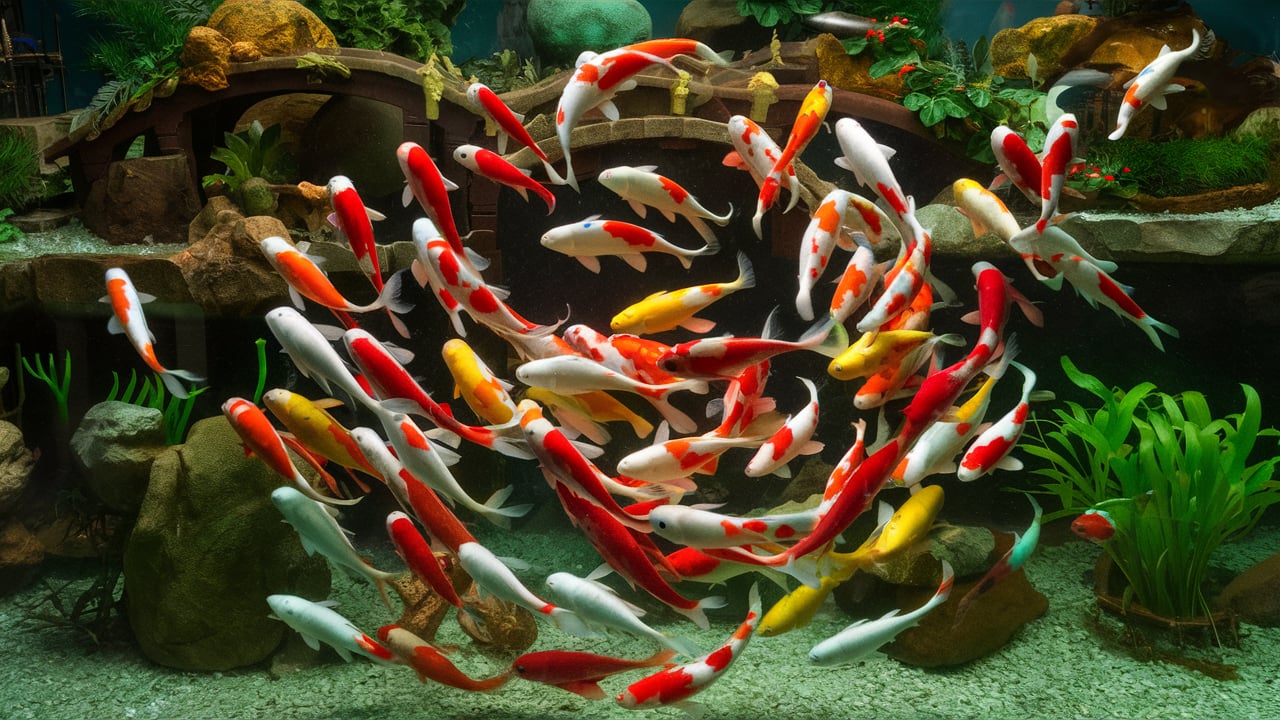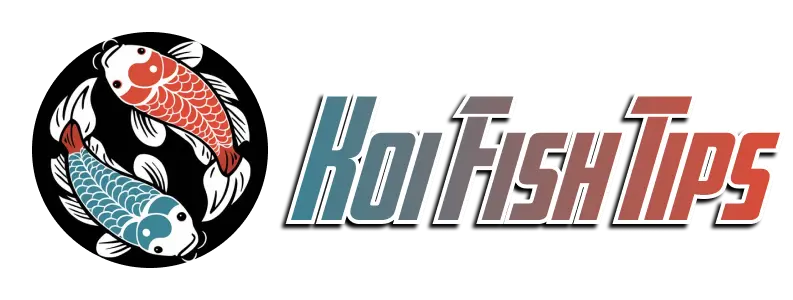Koi fish, with their vibrant colors and graceful movements, have captivated aquarists and pond enthusiasts for centuries. Understanding their Koi Fish Behavior is crucial for providing them with a happy and healthy environment. This exploration, brought to you by Koi Fish Tips, will delve into the intricacies of their social interactions, feeding habits, and natural instincts, offering valuable insights for any koi enthusiast.
Understanding Koi Fish: A Glimpse into Their World
Koi fish, a variety of the common carp, originated in Japan and have been selectively bred for their stunning colors and patterns. They are known for their longevity, with some individuals living for over 100 years. Their adaptability and resilience have made them popular worldwide, but their behavior is often misunderstood.
Social Structure
Koi fish are social creatures and live in groups called schools. Within these schools, there is a hierarchy based on size, strength, and dominance. The largest and most aggressive koi tend to dominate the group, while smaller and less assertive koi often occupy lower positions.
Feeding Habits
Koi fish are omnivores and have a varied diet. They primarily feed on algae, insects, and other small organisms found in their natural environment. In captivity, they can be fed a variety of commercially available koi food, as well as supplementary foods like vegetables and fruits.
Natural Instincts
Koi fish possess several natural instincts that influence their behavior. These include:
- Territoriality: Koi fish can be territorial, especially during breeding season. They may defend their chosen areas from other koi or even humans.
- Migration: In their natural environment, koi fish migrate to find food and breeding grounds. This instinct can be observed in captivity, particularly in larger ponds.
- Hibernation: Koi fish are cold-blooded and their metabolism slows down in cold weather. They may hibernate during the winter months, becoming less active and feeding less.
Decoding Koi Fish Behavior
Observing the behavior of koi fish can provide valuable insights into their health, well-being, and overall environment. Here are some key behaviors to watch for:
Feeding Behavior
- Active Feeding: Healthy koi fish are typically active feeders and will readily approach their food source.
- Refusal to Feed: If a koi fish refuses to feed, it could be a sign of illness, stress, or poor water quality.
- Excessive Feeding: Overfeeding can lead to obesity and health problems. It’s important to feed koi fish a balanced diet and avoid overfeeding.

Social Interactions
- Schooling: Koi fish typically school together, swimming in coordinated groups. This behavior is a natural instinct that helps them stay safe from predators.
- Aggression: Koi fish can exhibit aggression towards each other, particularly during breeding season. This aggression is usually confined to displays of dominance and rarely results in serious injury.
- Hiding: Koi fish may hide if they are stressed or feeling threatened. This behavior can be a sign of poor water quality, overcrowding, or the presence of predators.
Physical Appearance
- Color Changes: Color changes in koi fish can be a sign of illness or stress. For example, a koi fish that is losing its color may be suffering from a parasitic infection or poor water quality.
- Fin Rot: Fin rot is a common problem in koi fish. It can be caused by poor water quality, bacteria, or parasites. Koi fish with fin rot may have ragged or torn fins.
- Lethargy: Lethargy is a sign of illness or stress. A koi fish that is lethargic may be lying at the bottom of the pond or swimming slowly.
Frequently Asked Questions about Koi Fish Behavior
Why do koi fish jump out of the pond?
Koi fish may jump out of the pond for a variety of reasons, including:
- Stress: Stress from overcrowding, poor water quality, or predators can cause koi fish to jump.
- Breeding: Koi fish may jump out of the pond during breeding season.
- Escape: Koi fish may jump out of the pond if they are trying to escape from a predator.
Why do koi fish fight?
Koi fish fight for a variety of reasons, including:
- Territoriality: Koi fish can be territorial, especially during breeding season.
- Dominance: Koi fish fight to establish dominance within the school.
- Food: Koi fish may fight over food, especially if they are overcrowded or underfed.
How can I tell if my koi fish is healthy?
A healthy koi fish will have:
- Vibrant colors: Healthy koi fish have bright, vibrant colors.
- Active behavior: Healthy koi fish are active swimmers and readily approach their food source.
- Clear eyes and fins: Healthy koi fish have clear eyes and fins without any signs of damage or disease.
Conclusion
Understanding Koi Fish Behavior is essential for providing them with a happy and healthy environment. By observing their social interactions, feeding habits, and natural instincts, you can gain valuable insights into their well-being and provide them with the care they need to thrive.

Bài viết liên quan
What Do Koi Fish Eggs Look Like? Recognizing And Caring For Koi Spawn
Koi fish, with their vibrant colors and graceful movements, are a captivating sight in any [...]
Jul
How Long Can Koi Fish Live Without Food?
How long can koi fish live without food? As a responsible koi keeper, understanding the [...]
Jul
Can Koi And Goldfish Live Together? A Comprehensive Guide
Welcome to Koi Fish Tips, your ultimate guide to the captivating world of koi! If [...]
Jul